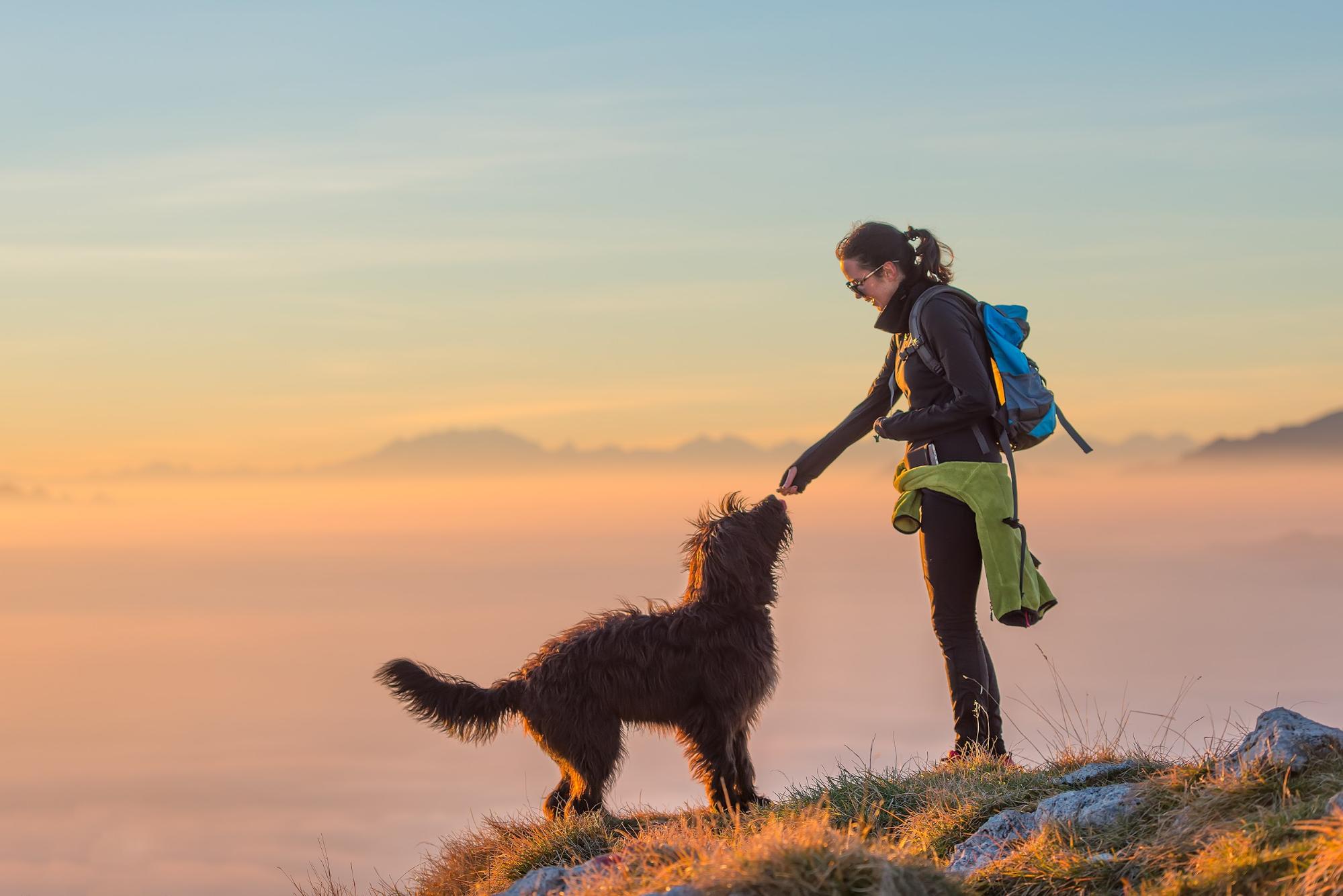1. Make sure your dog is healthy enough to hike
Not only is hiking great exercise for you and your dog, but it’s a special way to bond with your beloved pet while enjoying nature together. However, it’s important to keep the safety of your pet in mind at all times. Just like humans, dogs tire easily and can be at risk for heat stroke, especially on a hot day. Trail hazards such as steep, uneven terrain and aggressive wildlife can be dangerous for pets. Here are five tips to consider before you head out on your next hiking adventure:
Use good judgment and don’t bring pets along that aren’t fit for hiking. When you take into account factors like breed, size, personality, and age, not all dogs make suitable hiking companions. Hiking is a strenuous activity that should not be undertaken by dogs that can’t handle rigorous activity. Steep and uneven terrain can be difficult and dangerous for some pets to navigate.
If you want your pup to carry some of the hiking equipment, train him well in advance. Start by putting lighter packs on his back and take short walks and then build up to heavier loads. Dogs in top physical condition should be able to carry up to 25 percent of their body weight.1 Check with your vet and make sure your dog (especially if he’s small) is physically healthy enough to hike and carry a pack.
2. Keep dogs leashed and stay on designated trails
Always verify that dogs are permitted on a hiking trail before departing. You should be aware that most national and state parks do not allow dogs.2 When mapping out your hike, do research online or contact the managing agency and ask if their trails are dog-friendly. Even if dogs aren’t required by law to be on a leash, it’s a good idea to keep them leashed for their protection.
When hiking, be respectful of other hikers and dogs and don’t stray from designated trails. Make sure to keep an eye on your dog and don’t let him wander off. Between wild animals and poisonous snakes and plants, keeping your dog close by your side will prevent mishaps.
3. Let your dog take frequent rest breaks while hiking
Make sure to stop frequently along the trail to offer your dog water and occasional treats. On hot days, keep in mind that dogs can be at risk for heatstroke. Do not feed your dog right before or after hiking because they could get sick. Feed them at least one hour before or 30 minutes after hiking.3
It’s especially important to keep dogs safe around water sources. Don’t allow your dog to swim in or drink from unsafe water because he can become ill due to harmful parasites or algae in the water. If you hike in remote areas and don’t have access to safe, clean water, pack plenty of bottled water or bring along a portable water purifier.
4. Respect the hiking environment and pick up after your dog
Respect the environment and your fellow hikers by picking up after your dog along hiking trails. Use pet waste bags and throw them away in trash cans or safely bury pet waste at least 200 feet away from trails, water sources and campsites.4 Some hiking trails provide biodegradable dog waste bags, but it might be easier and more efficient to purchase them ahead of time at a pet supply store.
5. Pack plenty of pet supplies for your hiking trip
Your goal might be to travel lightly, but when packing hiking supplies for your dog it’s better to have more than less. Here’s a list of items to carry with you on your hike:
- Food and treats
- Safe drinking water
- Collapsible food and water bowls
- Leashes
- Disposable waste bags
- Pet first aid kit
- Pet insect repellent
- Protective dog clothing and booties
